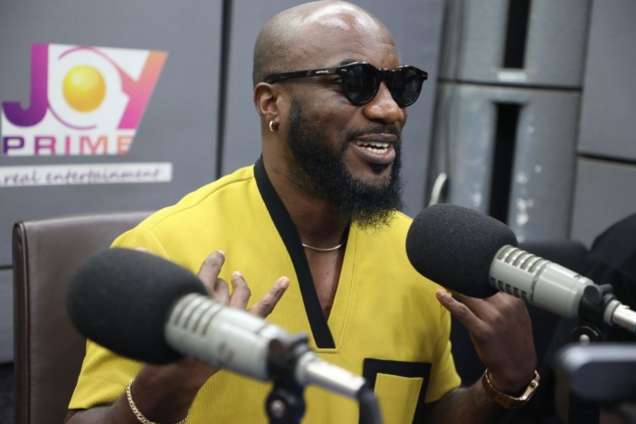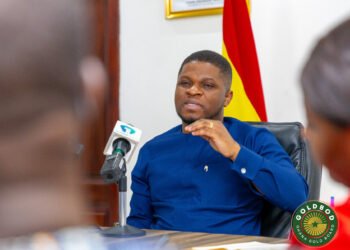Ghanaian highlife sensation and songwriter, George Kwabena Adu, known in showbiz as Kwabena Kwabena, has shared the highest point he has ever reached since he commenced his music career.
He stated his first meeting with South Africa’s late singer and trumpeter, Hugh Ramapolo Masekela was a dream he had always wished to come true.
“There have been so many highest points but the highest was meeting the legendary High Masekela.”
Kwabena Kwabena
The ‘Adult Music’ recounted the moment.
“It was a dream come true, and the fact that he came into this country and knowing the name Kwabena Kwabena, wanted me on his concert and wanted me to sing one of his great tunes.”
Kwabena Kwabena
Being a young and upcoming artist at the time, Kwabena Kwabena deemed that recognition a pleasure and held it in high esteem as he embraced the opportunity.
Hugh Ramapolo Masekela was a South African trumpeter, flugelhornist, cornetist, singer, and composer who was described as “the father of South African jazz”.
Masekela was known for his jazz compositions and for writing well-known anti-apartheid songs such as “Soweto Blues” and “Bring Him Back Home”.
He also had a number-one US pop hit in 1968 with his version of “Grazing in the Grass”. Masekela was sent to learn the rudiments of trumpet playing at Johannesburg “Native” Municipal Brass Band, which he quickly mastered.
In 1987, he released a hit single titled “Bring Him Back Home”. The song became enormously popular and turned into an unofficial anthem of the anti-apartheid movement and an anthem for the movement to free Nelson Mandela.
In 2006, Masekela was described by a professor of history and Middle Eastern and Islamic studies at New York University as “the father of African jazz” and was honored with a Google Doodle on April 4, 2019, which would have been his 80th birthday.
The late trumpeter was nominated for a Grammy Award three times, including a nomination for Best World Music Album for his 2012 album. Masekela has composed a lot of hit songs, including ‘No Woman, No Cry’, and has featured artists across the world, with Ghana’s songstress Becca included.
Artist Voices His Disinterest in Award Schemes

Kwabena Kwabena voiced his disinterest in award schemes, citing controversies, inconsistencies, and the promotion of rivalry amongst artists.
He expressed his desire for a more structured and unified approach to recognizing artistic achievements.
“I wish it can be structured in a way that even when you are nominated, you will feel good.”
Kwabena Kwabena
Kwabena Kwabena lamented the personalization of awards, often leading to confrontations and disputes amongst artists.
He referenced past instances of on-stage conflicts, stating that, “they take away the beauty of entertainment and the joy of the ceremony.”
The “Aso” hitmaker noted he preferred an award scheme that celebrates unity and mutual appreciation among artists.
He suggested that a more collaborative approach would make award schemes more appealing to him.
The artist expressed his enthusiasm for the entertainment aspect of award ceremonies, where he can perform and celebrate music instead of rivalry.
Kwabena Kwabena revealed the inspiration behind his seventh album, “God of Restoration” EP.
He shared his journey, from facing challenges after his debut album to becoming an independent artist after the release of his second album.
He revealed that he made a promise to God that if he successfully recorded six albums, he would dedicate the seventh to Him.
After releasing his sixth album last year, Kwabena Kwabena decided to fulfill his promise by recording a gospel-themed EP.
The “God of Restoration” EP is a five-track project, with the first single, “Fakyɛme”, featuring Obaapa Christy, dropping on July 5, on all digital streaming platforms.
The official video of the song will be premiered on YouTube in the next fortnight.
Kwabena Kwabena described “Fakyɛm”e as a day starter, by asking for forgiveness from God.
READ ALSO: Atlantic Lithium Tops Gainers with 7.58% Surge on a No-Loser Day for GSE



















